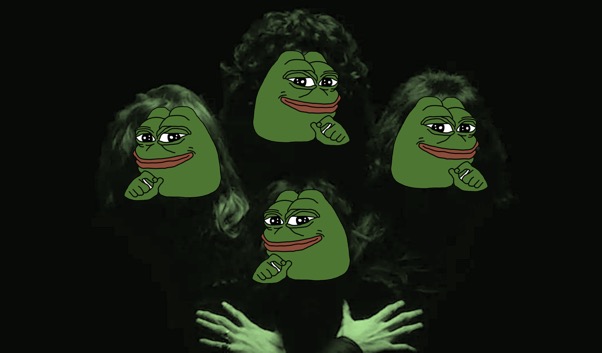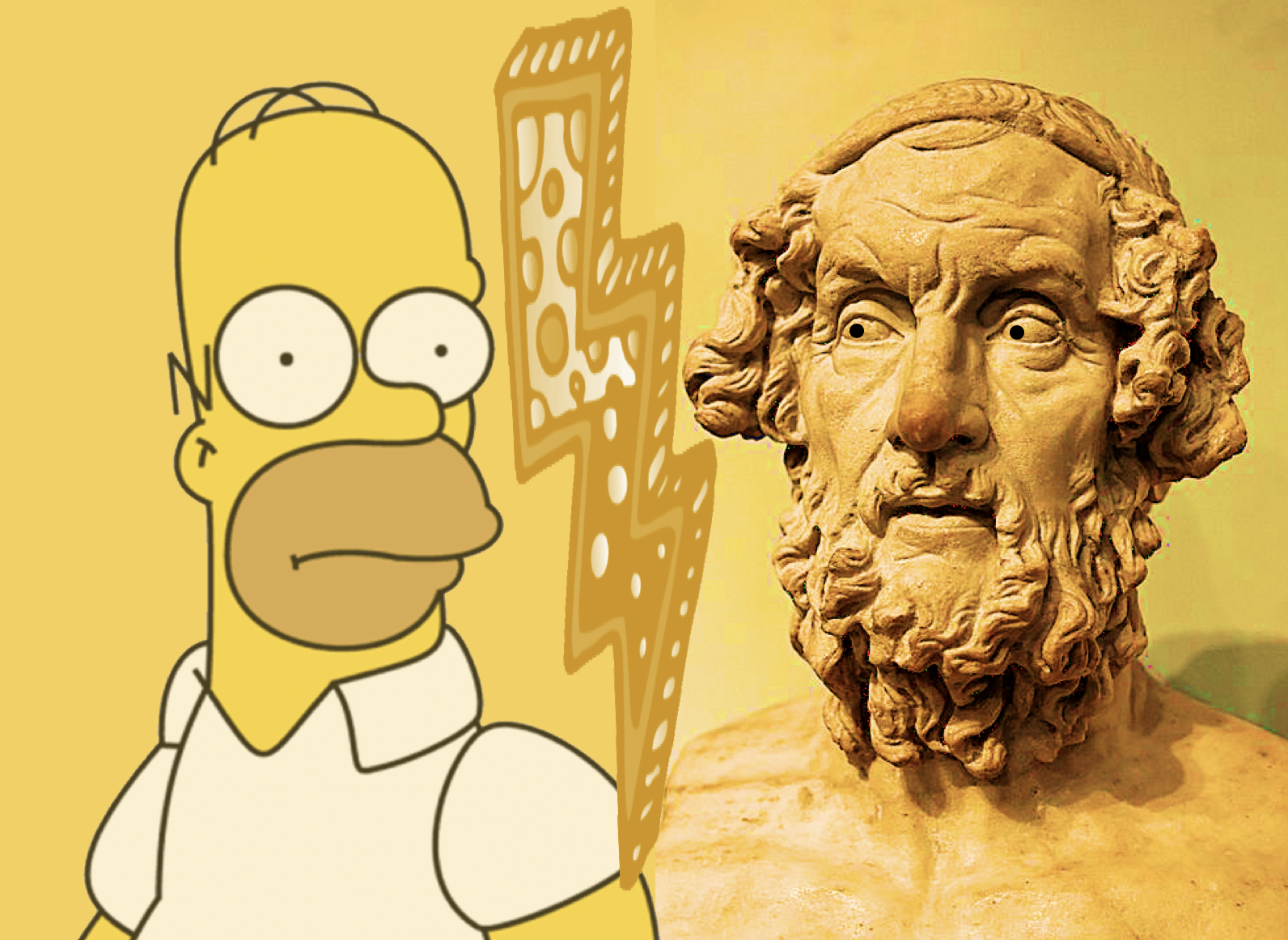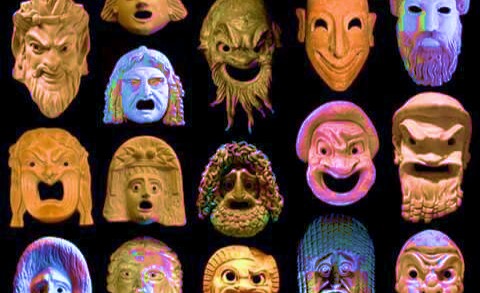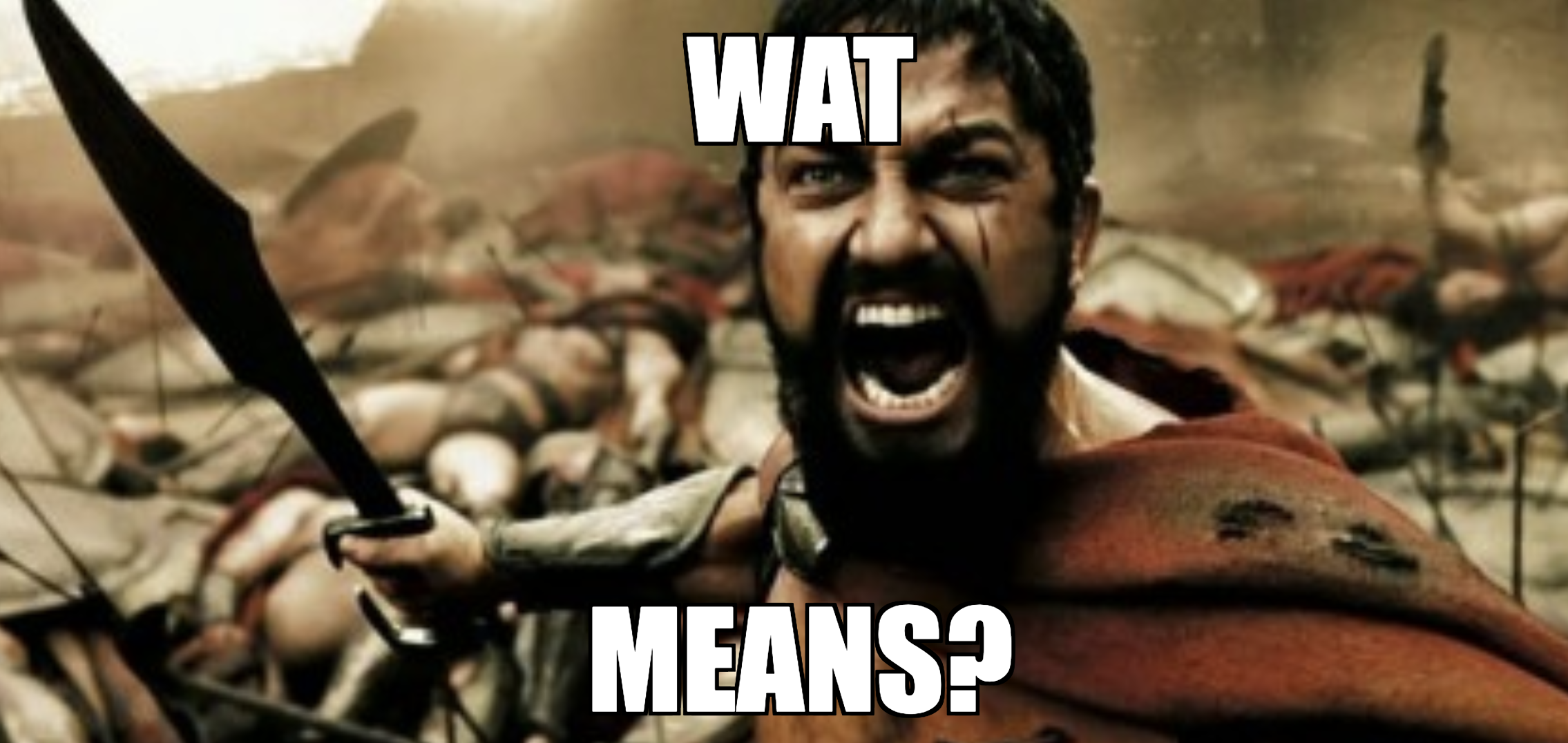Ideologues seem incapable of doing so without resorting to name-calling.
An Epic Pervert
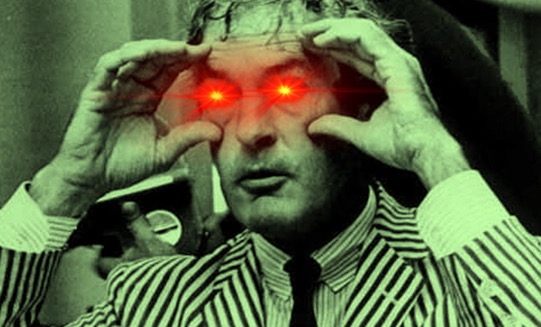
The BAPists may be fun to read, but there is little of value beneath their empty aesthetic.
Where were you the day Michael Anton discovered Bronze Age Pervert? Hyperbolic as it may sound, many more Americans than subscribe to the Claremont Review of Books will be asking one another this question in the coming years. Anton’s review of Bronze Age Mindset is a watershed: its publication crosses two deep currents in right-wing thought—one high profile and mainstream, the other chthonic and forbidden—that until now had run on parallel tracks.
Yet the simple fact that overshadows the event is that Anton is late to the party.
Bronze Age Pervert—whoever in this incarnation he is—has existed for years, long before he wrote the book Anton reviewed. It is a book which has sold tens of thousands of copies and, hilariously, at the time of this writing sits at #3 in Amazon’s rankings of books in the “Ancient Greek History” category. As Anton noted, BAP, as he’s known, achieved this all without a publicist or book deal.
The phenomenon BAP has become didn’t just appear from the ether one day. It had been cooking for years, in the stew that was called “Frogtwitter.” Not to be confused with the Alt-Right proper, or with the thousands of troll, reactionary, or neo-Nazi Twitter accounts which adopted Pepe the Frog as their mascot in the time around Trump’s election in 2016; the genuine Frogtwitter was a collection of mercurial, eccentric, and usually vulgar personalities (never more than a few dozen at any given time) which in practice ended up creating what can only be properly described as a kind of collective performance art project.
Along with BAP, the best-known members of this strange cabal were “Kantbot,” “Menquainoe,” and, easily the most talented of the bunch, “Melchizekek.” To give one a taste of what Frogtwitter was, here’s a sampling of a few of Melchizekek’s tweets:
“I dreamt I was a dung architect. I slaved for years, all alone, building a city from my own waste. It’s geometry was holy [sic.]. No one understood.”
“The shadow of progress is apocalypse. From a certain distance, who can distinguish the desire to save the world from the desire to end it?”
“Beset by broadcast tinnitus, Yankees spill their seed for recreation and don brittle armor fashioned from fossils! So much of America is nothing more than stretches of dry riverbeds where boys howl and murder one another in heat stroke. Prone in the shape of cities, our Machine God stews orgasm fantasies to grease his wheels with. We sweat from graft in his sensual kitchens.”
“America is the Land of the Unreal. Man’s fantasies unlatched, all have prospered, crystal palaces and castles of nightmare.”
“This country has become a Mt. Dew kidney stone that God—with sweat, blood, and tears—is trying his best to pass.”
“Frogtwitter, with its terminal dedication to abolish order and avoid work, its bipolar mode, resembles every failed Avant Garde movement. It is an ongoing, neurotic cipher without rhyme or reason.”
In addition to being a short-lived, bizarro, and entirely online right-wing avant-garde movement, Frogtwitter was a struggle with the end of liberalism. Its nihilistic performance art was a way of rejecting a failed paradigm, purging the poison out of its system the only way most people know how: by vomiting it up.
It was a spiritual mutiny against the religion of progressive liberalism, but it was a mutiny of perverts. And one of those perverts was BAP.
Criticism with a Whisper
Perverted as BAP surely is, Anton was right to review his book. He would also be right to be slightly more enthusiastic about the little forbidden pulp gem than his exoterically sober review lets on.
Bronze Age Mindset is an exercise in lucid Nietzschean madness which also happens to be gut-bustingly funny. You simply won’t find lines like “Here is my vision of the true justice…: the zoos opened, predators unleashed by the dozens…four thousand hungry wolves rampaging on streets of these hive cities, elephants and bison stampeding, the buildings smashed to pieces, the cries of the human bug shearing through the streets as the lord of beasts returns…. [L]et them bring the justice of the volcano to this world of trash!” in many other places.
Anton examines the book’s contents and philosophy (such as it is) at length, so there’s no point in rehashing that here. Suffice to say BAP is a pure vitalist, and Bronze Age Mindset is perhaps best understood as a kind of Italian futurist painting transmuted into written form. A Heraclitan barrage of Nietzschean exhortation presented in caveman internet slang.
Still, Anton’s review and its subject are, at our present moment, worthy of more criticism than praise. For if there was one thing lacking from Anton’s review it was genuine criticism. Anton’s relative silence in the face of BAP’s wild assertions spoke volumes, betraying a lack of self-confidence in his own stated positions.
And who can blame him? Anton’s position—that human equality is discernible through unaided, secular human reason—is patently absurd. Laughable even. This has never been more obvious, especially to the younger members of the contemporary Right in America, who have helped to make “race realist” commentary sites like Quillette, which highlight this obvious fact, some of the most popular on the web.
Though such sites are essentially little more than propaganda outlets for a thinly veiled neo-eugenic movement, even their meager, philistine insights are more than enough to demolish Anton’s attempts to generate any straightforward account of human equality using “reason” alone.
Arguments for some kind of metaphysical equality depend, perhaps, more on the inheritance of Christianity than Anton’s tradition would admit. The Black man, said Lincoln, primary exponent of that tradition, is not Lincoln’s equal in skin color—ex hypothesi, he may not be his equal in other ways too. But “in the right to eat the bread, without leave of anybody else, which his own hand earns, he is my equal and the equal of…every living man.” But are the moral faculties by which Lincoln grasped this shaped entirely by natural reason, with no admixture of interference from the ever-interfering God of Abraham? Lincoln himself, at least the Lincoln of the Second Inaugural, would deny it.
Jefferson, much more inclined to deny it, famously wrote that:
The general spread of the light of science has already laid open to every view the palpable truth, that the mass of mankind has not been born with saddles on their backs, nor a favored few booted and spurred, ready to ride them legitimately, by the grace of God.
And he decried the “monkish ignorance and superstition” that had, in his account, blinded men to this fact for millennia. But Aristotle, one of Anton’s touchstones, himself had explicitly argued that certain categories of human beings were “natural slaves”—a sentiment with which BAP obviously agrees. The difference, perhaps, is that BAP is simply the pure stuff—a deeper recrudescence of paganism than even Jefferson had managed, despite his attempts. It begins to look as though it was, all along, the “monkish ignorance and superstition” that had shaped an account of human equality that is more deeply rooted than the obvious inequality of ability.
Why, exactly, is BAP wrong? Why was Aristotle? Anton never says. He merely gestures—in the process pouring a little wine out for the American Idea.
If this is a refutation of BAP-ism, it seems almost deliberately weak. “Yes, he offers you Homeric virtue, pre-Socratic strength, and the delicious destruction of all progressive pieties, but have you considered…the social contract?”
BAP is much more forthright in his position, which pulses with the thumos Anton’s lacks. Put simply: there are beauty and ugliness, strength and weakness, the good and the bad. The former attributes should be extolled, and the latter despised: it’s that simple. There is no possible room in his formulation for any other interpretation.
In practice this means that there is no reason why, for instance, malformed children should be allowed to live past infancy and sap resources which could go to the healthy and robust ones. There is no reason why residents of the Indian subcontinent, whom BAP likens to soulless insects, genetically predestined—he says—to live in filth and squalor, should be treated as anything even close to equals by Europeans, descended as they are from the men who built the sublime Apollonian societies of Greece and Rome. There is certainly no reason why they should be allowed into the countries of their betters. There is no fellowship between those who are weak and those who are strong. And where there is no fellowship, there is no honor in the Christian sense—nothing but power and its exercise.
Though BAP, to his credit, eschews the sterile IQ fetishism fashionable among many of the online Right, he ultimately is a kind of Darwinian (even if he condemns Darwin himself, consistently and correctly, as a product of “bug-thought”). His “exhortations” are an explicit call for the strong to dominate the weak. The fittest will survive, and so they should.
Still, as compelling a figure as BAP is, and as enjoyable a read as Bronze Age Mindset is, there is something…off about the whole enterprise. Something incredibly naive, virginal even. A naivety very much in line with what the Romanian essayist Emil Cioran observed about Nietzsche:
He demolished so many idols only to replace them with others: a false iconoclast, with adolescent aspects and a certain virginity, a certain innocence inherent in his solitary career. He observed men only from a distance. Had he come closer, he could have neither conceived nor promulgated the superman, that preposterous, laughable, even grotesque chimera, a crotchet which could occur only to a mind without time to age.
One can enjoy BAP’s clown show, can point and laugh at our effete “bug-man” ruling class, without buying into his primary conceit: that he is anything more than the nihilist which he readily admits, if one reads him closely enough, to being. In this sense he is still stuck in 2016, a culmination of Frogtwitter’s expectoration of liberalism.
Although BAP and Frogtwitter’s heroic rejection of liberalism is, indeed, the necessary soil out of which any meaningful post-liberal future must grow, it’s not enough.
Turn Bronze, Tune In, Drop Out
The spring-time spirit of the Pepe of 2016 has morphed into the obese and inert “Groyper” of the present. A collective social media boil which has become deeply infected with a spiritual plague, now producing (and forever reproducing) nothing but trite clichés, formulaic threats, and impotent power fantasies. A parody of its former self, it is a movement quickly nearing the end of its memetic life-cycle, and BAP is no exception to this.
BAP, for all his charm, isn’t serious. For as he says himself, Bronze Age Mindset is “a teaching of peace.” A “teaching” which is at bottom little more than another form of self-improvement (as much as he may try to deny this)—a way for lonely suburban middle-aged men to reconcile themselves to the servitude which is their fate, and all the gym memberships and “physique poasting” in the world won’t change this. For all his charming bluster, he ultimately has far more in common with Jordan Peterson than Genghis Khan. A lamb who dreamt he was a lion.
The same can’t be said for all the forces currently fomenting beyond liberalism, many of which have gone beyond Frogtwitter’s juvenile, if necessary, nihilism to something else entirely. There are even rumors of a certain notorious Harvard professor, who speaks of “friends and enemies” and desires to bring not peace, but a sword.
And it is these forces, embryonic in form though they still are, which will mold the future, and bring an end, once and for all, to Frogtwitter’s impotent nihilism, and the liberalism which gave it birth. Melchizekek, the greatest Frogposter, understood this better than most, and foretold it when he wrote:
To become men, we went down to the cave of scrap metal where the medicine frog danced and sealed our soul in a doodle on the wall of memes. They say one day a heat wave is going to come and melt that wall away, then there will be nothing left of us.
And that day is almost here. Thus, now might be the right time for BAP to take some of his own advice: “Be Careful!”
The American Mind presents a range of perspectives. Views are writers’ own and do not necessarily represent those of The Claremont Institute.
The American Mind is a publication of the Claremont Institute, a non-profit 501(c)(3) organization, dedicated to restoring the principles of the American Founding to their rightful, preeminent authority in our national life. Interested in supporting our work? Gifts to the Claremont Institute are tax-deductible.
Our decadent elite cannot survive our technological transformation.
Nothing really matters, zany pervs can see.
Traditional conservatives could use a fresh rhetoric of masculinity.
New artefacts overthrow old impostures.
What should the Right make of Bronze Age Pervert and his Twitter devotées?



